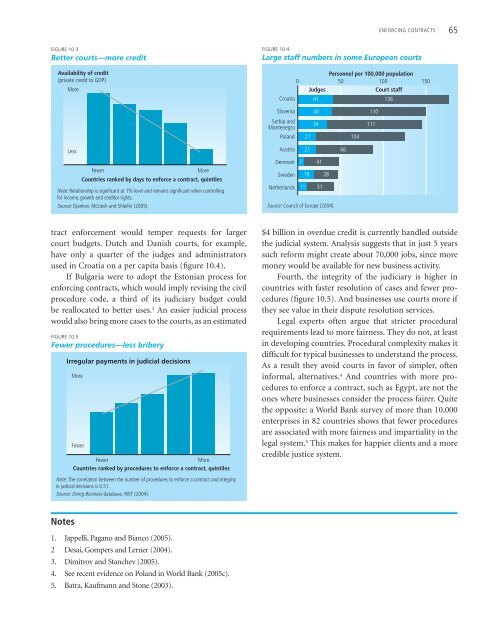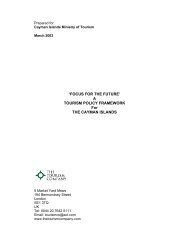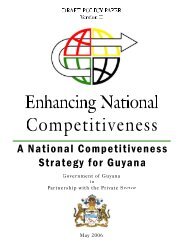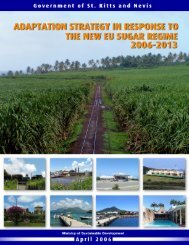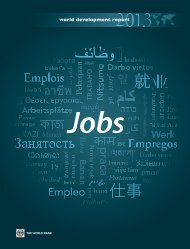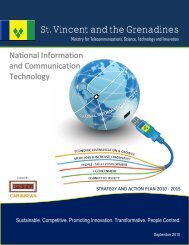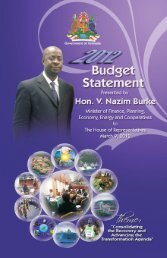Creating
Doing Business in 2006 -- Creating Jobs - Caribbean Elections
Doing Business in 2006 -- Creating Jobs - Caribbean Elections
Create successful ePaper yourself
Turn your PDF publications into a flip-book with our unique Google optimized e-Paper software.
ENFORCING CONTRACTS 65<br />
<br />
<br />
<br />
<br />
<br />
<br />
<br />
<br />
<br />
<br />
<br />
<br />
<br />
<br />
<br />
<br />
<br />
<br />
<br />
<br />
<br />
<br />
<br />
<br />
<br />
<br />
<br />
<br />
<br />
<br />
<br />
<br />
<br />
<br />
<br />
<br />
<br />
<br />
<br />
<br />
tract enforcement would temper requests for larger<br />
court budgets. Dutch and Danish courts, for example,<br />
have only a quarter of the judges and administrators<br />
used in Croatia on a per capita basis (figure 10.4).<br />
If Bulgaria were to adopt the Estonian process for<br />
enforcing contracts, which would imply revising the civil<br />
procedure code, a third of its judiciary budget could<br />
be reallocated to better uses. 3 An easier judicial process<br />
would also bring more cases to the courts, as an estimated<br />
<br />
<br />
<br />
<br />
<br />
<br />
<br />
<br />
<br />
<br />
<br />
$4 billion in overdue credit is currently handled outside<br />
the judicial system. Analysis suggests that in just 5 years<br />
such reform might create about 70,000 jobs, since more<br />
money would be available for new business activity.<br />
Fourth, the integrity of the judiciary is higher in<br />
countries with faster resolution of cases and fewer procedures<br />
(figure 10.5). And businesses use courts more if<br />
they see value in their dispute resolution services.<br />
Legal experts often argue that stricter procedural<br />
requirements lead to more fairness. They do not, at least<br />
in developing countries. Procedural complexity makes it<br />
difficult for typical businesses to understand the process.<br />
As a result they avoid courts in favor of simpler, often<br />
informal, alternatives. 4 And countries with more procedures<br />
to enforce a contract, such as Egypt, are not the<br />
ones where businesses consider the process fairer. Quite<br />
the opposite: a World Bank survey of more than 10,000<br />
enterprises in 82 countries shows that fewer procedures<br />
are associated with more fairness and impartiality in the<br />
legal system. 5 This makes for happier clients and a more<br />
credible justice system.<br />
Notes<br />
1. Jappelli, Pagano and Bianco (2005).<br />
2 Desai, Gompers and Lerner (2004).<br />
3. Dimitrov and Stanchev (2005).<br />
4. See recent evidence on Poland in World Bank (2005c).<br />
5. Batra, Kaufmann and Stone (2003).


